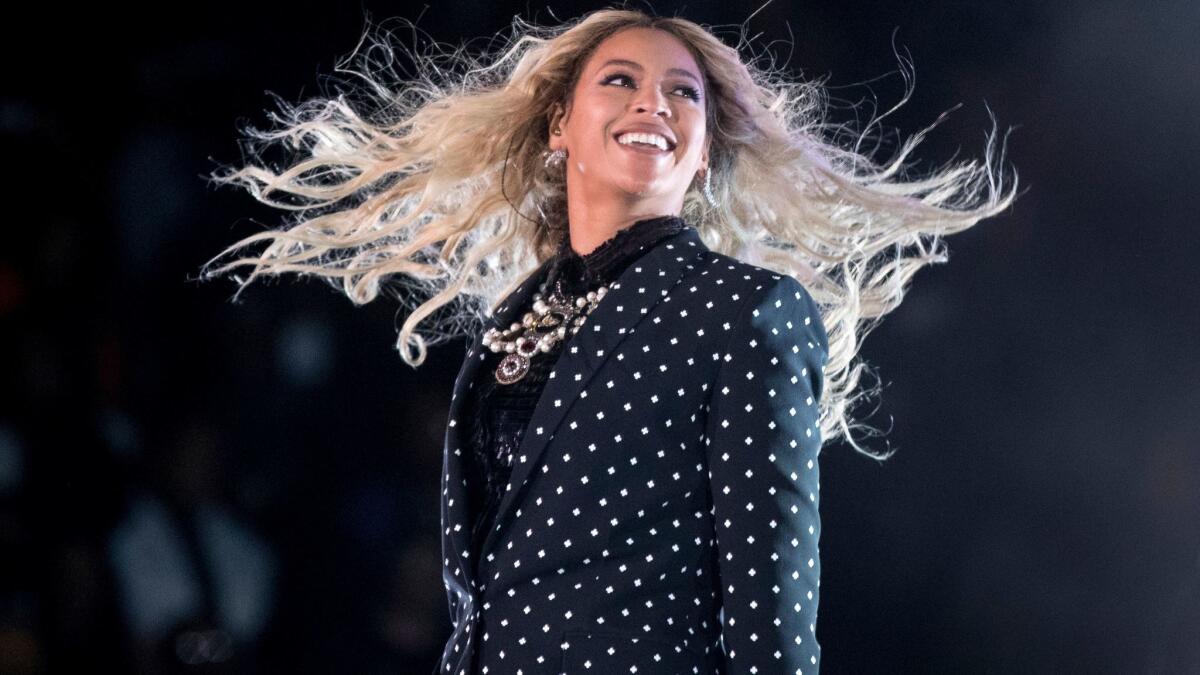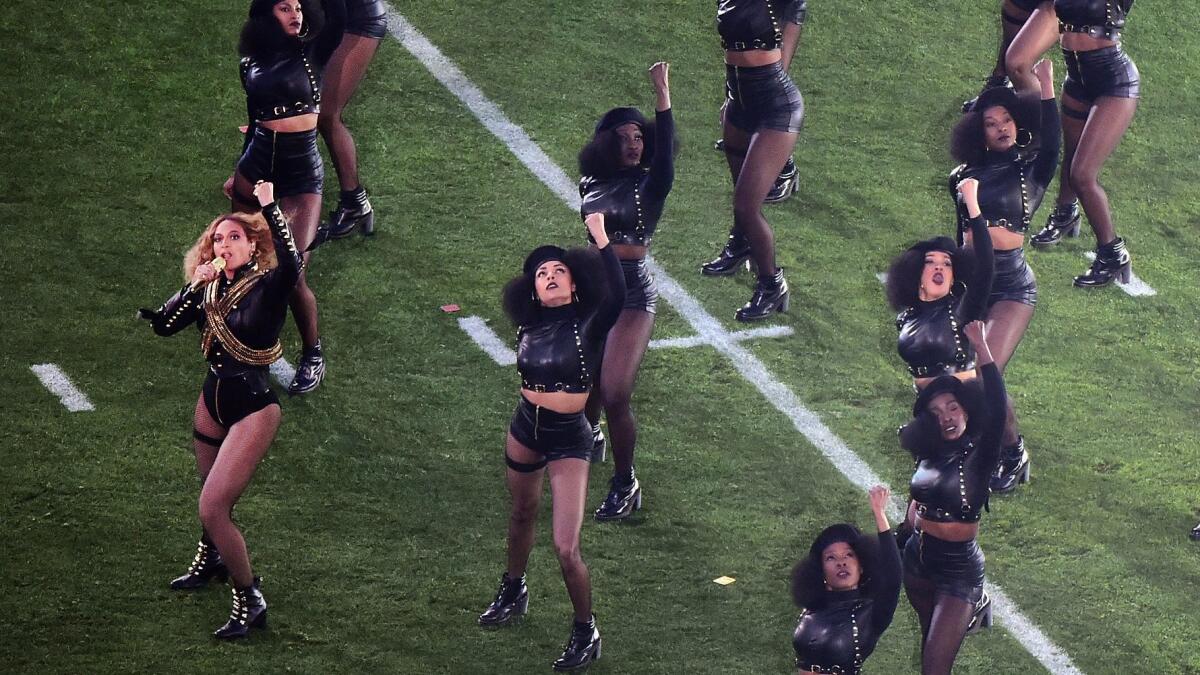Where culture went in 2016, Beyoncé went

- Share via
What did we see when we saw Beyoncé in 2016?
The most famous American pop musician who sold out stadiums and single-handedly made the Super Bowl halftime show essential viewing?
Or a defiant polemicist who placed black women’s emotional lives in the middle of the most radical LP of the year?
Or a Southern artist and country-music lover whose hope for a Hillary Clinton presidency was nonetheless rejected by just enough voters at the ballot box?
In 2016, Beyoncé was everywhere: music, film, sports, politics, life. But was her album “Lemonade” a glimpse at the inevitable future of a changing America or a sign of how much pain and struggle is still to come?
One remarkable aspect of “Lemonade” is how its meaning has grown and deepened over the course of a very difficult year. When the LP was released with no pre-fanfare in April (as an HBO film and Tidal streaming exclusive), much of the popular-media conversation focused on its up-close look at her marital travails with Jay Z.
But black women recognized that the album was something much more vital and political. Its themes — reconciling with pain and mistreatment, finding comfort from generations of women — were of the utmost importance.
“For black women, [‘Lemonade’] was very radical from the very beginning, and it was received that way. Black women discussing its revolutionary aspects changed the conversation about it,” said Kinitra D. Brooks, an English professor at the University of Texas at San Antonio.
Brooks taught a course on Beyoncé and black women in popular culture.
“Black women’s acts of caring and healing are political acts, and those things have never been separated. What’s revolutionary about [Beyoncé] is that she can make it popular,” Brooks said.
Only Adele, arguably, has recently made a record that matched the popularity of “Lemonade.” Beyoncé earned nine Grammy nominations (including for best rock performance) and has the wind at her back for an album of the year award.
Her searing collaboration on “Daddy Lessons” with the Dixie Chicks at the Country Music Assn. Awards’ proved that her fundamental Southern-ness was a unifying force across genre. Beyoncé’s brilliance was just about the only thing America agreed on this year.
Almost.

When she took the Super Bowl halftime show stage in a sexy, severe black-leather getup purposefully evoking the Black Panthers, she didn’t just render fellow performers Bruno Mars and Coldplay sidenotes to the day.
She walked into the lion’s den ofAmerican sports culture and gave back the blackest, most visually provocative set the event has seen. If the fallout from Janet Jackson’s Super Bowl wardrobe mishap saw America shaming a black woman’s body on its biggest stage, Beyoncé’s set saw her take a crowd of millions and stand tall, her vision intact.
“Bey’s instrument is the camera,” Brooks said. “She’s very aware of how her look plays, and she plays the camera just as smoothly as Nina Simone played the piano. She chooses black dancers with different body types all over the spectrum of black beauty, and [at the Super Bowl] she went and pushed it in the face of America at arguably its most blood-hungry.”
However, as November’s election made clear, America’s right-wing streak was just getting started. Beyoncé performed at an election-eve Ohio rally where she threw all her cultural influence behind Clinton. Bey had previously issued a visceral, moving statement in support of Black Lives Matter and sang “At Last” for the first dance of President Obama’s inauguration. Her work in documenting the interior lives of black women as always had implicit political edges.
But for once Beyoncé was on the losing side, and this time it was one of the most important arguments America has had with itself since the Civil War. Who is this country made for? Are women, immigrants and minorities equal people under the law?
Come January, those questions will become much more immediate. More than ever, we’ll need Beyoncé to remind us that America, for all the spite and hate and willful viciousness in its history, is also a place where people (especially black women) have healed and loved in the face of inconceivable pain.
Whatever Beyoncé does next, that’s a reminder — and a radical gift — that we’re going to need to hold close.
More to Read
The biggest entertainment stories
Get our big stories about Hollywood, film, television, music, arts, culture and more right in your inbox as soon as they publish.
You may occasionally receive promotional content from the Los Angeles Times.










